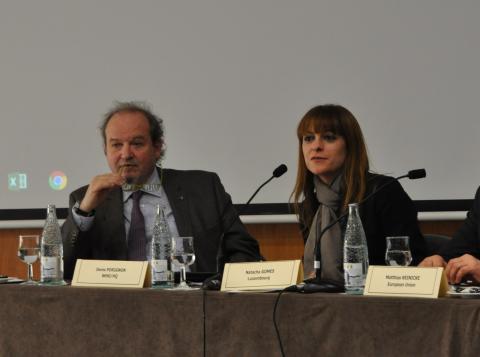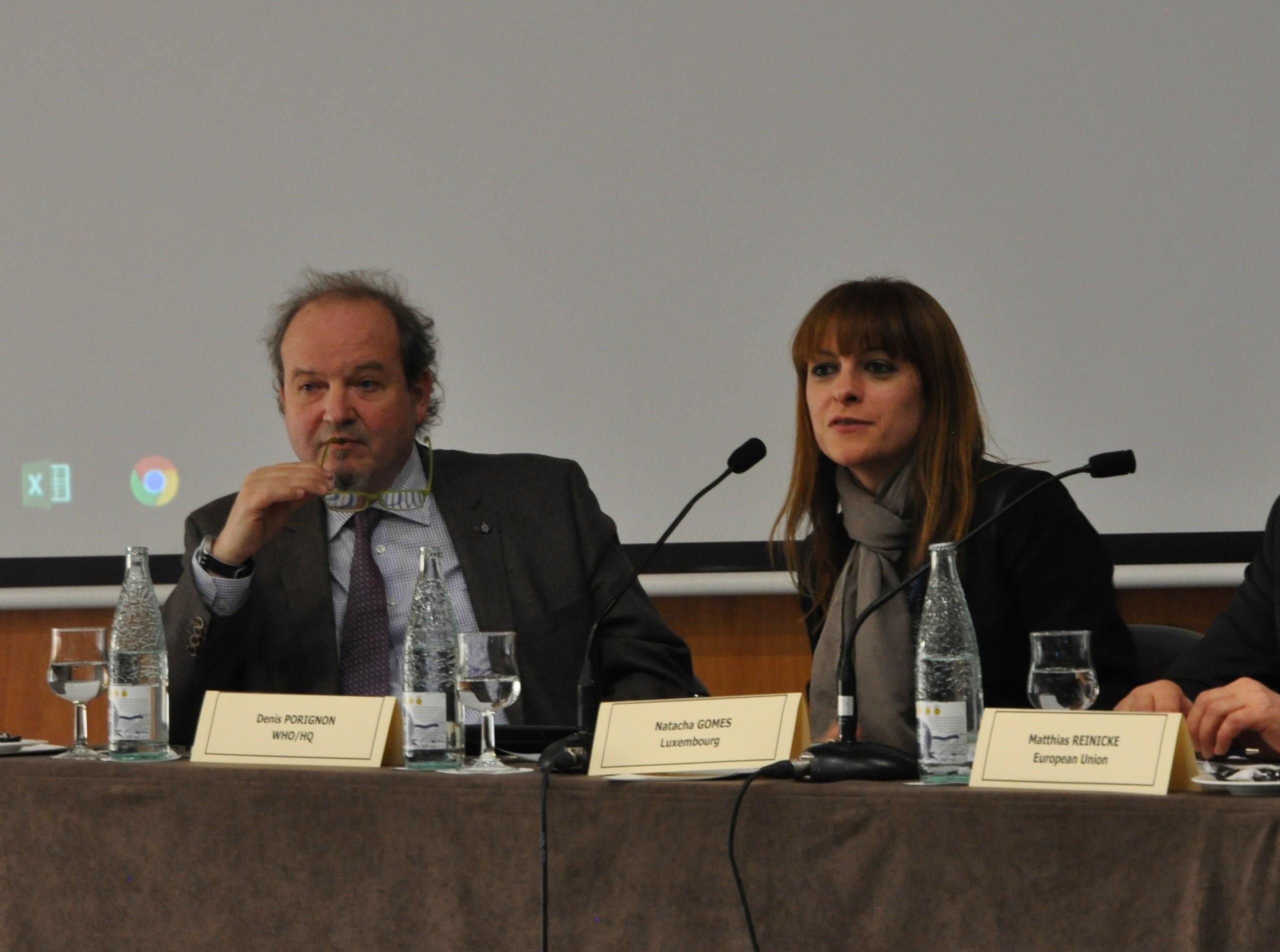
“Our recent commitment to continue supporting the EU-Luxembourg-WHO Universal Health Coverage Partnership under its third phase shows how much we believe in this partnership and how much we want to carry it forward”, Natacha Gomes, Adviser for Global Health and Multilateral Affairs at the Directorate for Development Cooperation, Luxembourg, stated during her opening remarks at the 4th Annual Technical Meeting of the EU-Luxembourg-WHO Universal Health Coverage Partnership (UHC‑P), held in Barcelona 1-3 March 2016. “Universal health coverage will continue to be a priority of our development cooperation”, she added.
Luxembourg joined the UHC-P in 2013 and enabled the programme to expand its activities to five new countries: Burkina Faso, Cabo Verde, Mali, Niger, Senegal. . During the initial phase of its support, Luxembourg took a cautiously optimistic view of the programme, but have since been encouraged by the programme’s increasingly visible results: “The programme was perhaps a bit slow in taking off and establishing itself”, Gomes explained, “but it has since proven that it has achieved a lot over the past four years”. Accordingly, Luxembourg agreed, in 2015, to support a sixth country under their component of the partnership, namely Laos.
Although the pace of progress has understandably varied among partner countries – each facing a unique set of health system challenges – Gomes explained that all countries had been able to demonstrate significant achievement. Gomes highlighted the progress made in 2015 as particularly encouraging following the supportive engagement and planning that took place during the previous UHC-P Annual Technical Meeting, held in Hammamet, Tunisia at the end of 2014. “It was the first annual meeting I attended and it was very insightful and eye-opening – it clearly demonstrated the UHC-P’s added value”, she said.
Gomes further emphasized the importance of the annual technical meetings for programmes like the UHC-P – where focusing on strengthening systems means “quick wins” are rare and that many results can only be achieved with careful intervention over the long term. She sees the meetings as a means for demonstrating how programme activities move forward in a stepwise fashion, linking incremental results to longer-term targets. They are also an essential avenue for obtaining direct feedback from partner countries about their successes, challenges and lessons learnt in implementing the programme. As an example, Gomes mentioned the feedback she had received from the government in Cabo Verde, via the Luxembourg embassy: “Even though the UHC-P’s financial contribution to the country was relatively small, the government saw it as very catalytic – for example, by supporting the signature of the national IHP+ compact”, she said. The compact helped to consolidate health policy dialogue among development partners and allowed for more efficient mobilisation and use of resources needed to implement the national health strategy in Cabo Verde.
Other examples of recent country-level results made possible through Luxembourg’s contribution to the UHC-P include support for the adoption of the health and social development plan (PRODESS III, 2014-2018) in Mali in 2014, as well as the development of a health insurance law aimed at increasing access to health services in Burkina Faso, adopted in 2015.
According to Gomes, the annual meeting in Barcelona was also a successful tool to raise awareness amongst country stakeholders about important global developments and their potential implications for country-level decision-making, especially with regard to the newly adopted Sustainable Development Goals. Meeting discussion and requests for guidance from partner countries on how to adapt this massive global agenda at country level were “very enriching in that they allowed countries to flag their national needs and priorities, which should guide the implementation of the global agenda in the respective countries”, Gomes said.
Asked how the UHC-P complements Luxembourg’s bilateral development cooperation and health programmes in the partner countries, Gomes explained that certain UHC-P countries, namely Senegal and Laos, also receive large bilateral health sector support from Luxembourg, and that the partnership had helped join development partners around the common objective of universal health coverage. In this context, the UHC-P contributed by filling essential gaps not addressed by the bilateral programmes. In most other UHC-P countries, where Luxembourg does not engage directly in the health sector coordination mechanisms, support to the UHC-P was seen as a particularly important means of entrusting and supporting WHO with this role.
Last, but not least, CSF asked Gomes about Luxembourg’s future expectations for the UHC-P; she explained: “Now that the partnership is working well, it is important that it really ‘takes root’ in the partner countries, which need to fully absorb the processes launched under the UHC-P”. Another important aim, according to Gomes, will be to ensure that the programme’s impact is sustained in the long run. Established training and capacity-building processes, for example, need to be formally incorporated within country-level institutions involved in the programme in order to ensure sustainability and avoid a potential loss of institutional memory caused by staff turnover.
Platforms for sharing experiences and lessons between partner countries should continuously be fostered, not least in order to ensure that the programme can be replicated elsewhere, “especially because other non-partner countries are starting to get interested in the UHC-P”, says Gomes. Some countries had even started using the UHC-P programme as a model for their own contexts without receiving any resources from the partnership, “which is a very good sign”, says Gomes.
This article was written in collaboration with Natacha Gomes, Adviser for Global Health and Multilateral Affairs at the Directorate for Development Cooperation, Luxembourg, who was interviewed by Community Systems Foundation (CSF) on the sidelines of the 4th Annual Technical Meeting of the EU-Luxembourg-WHO Universal Health Coverage Partnership (UHC-P), held in Barcelona in March 2016.
